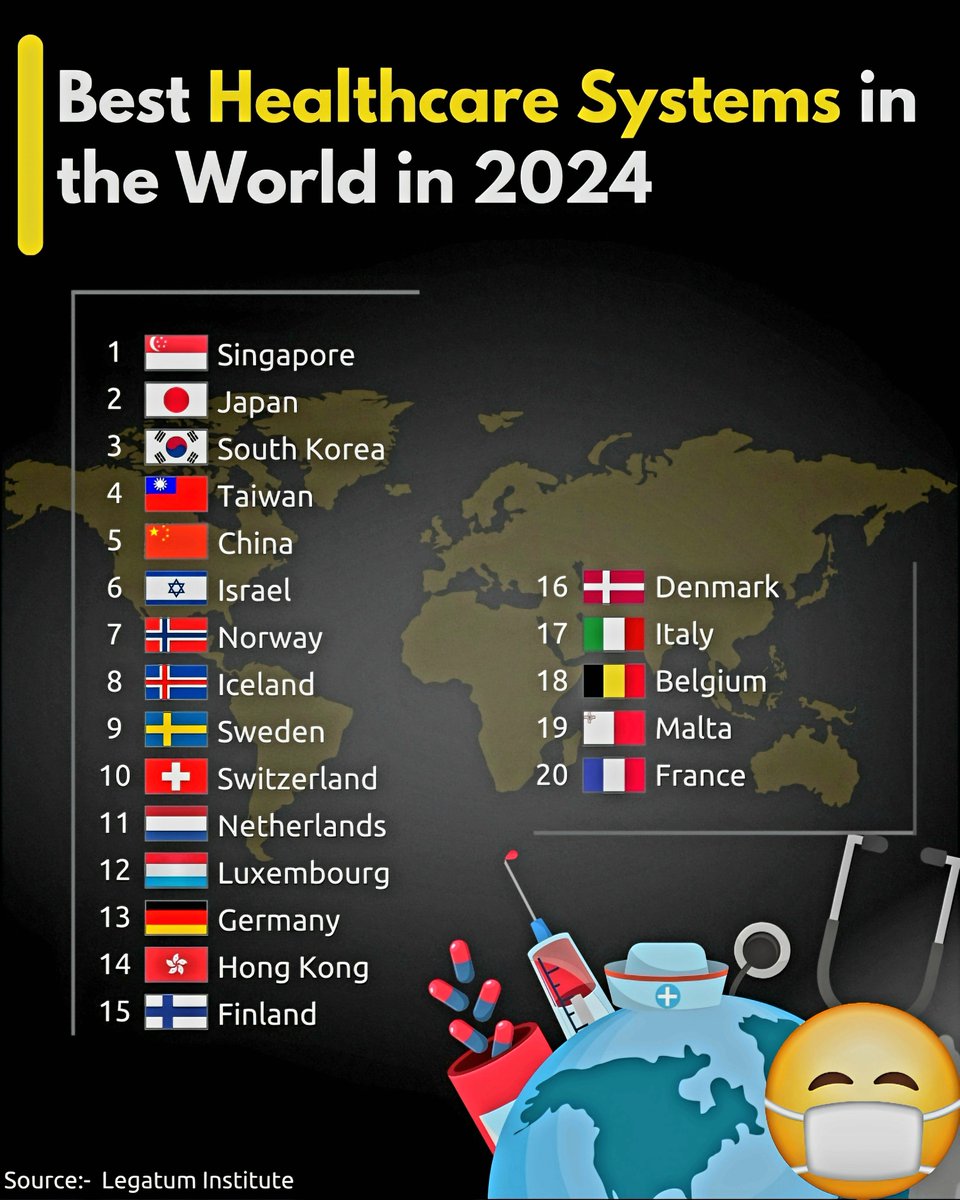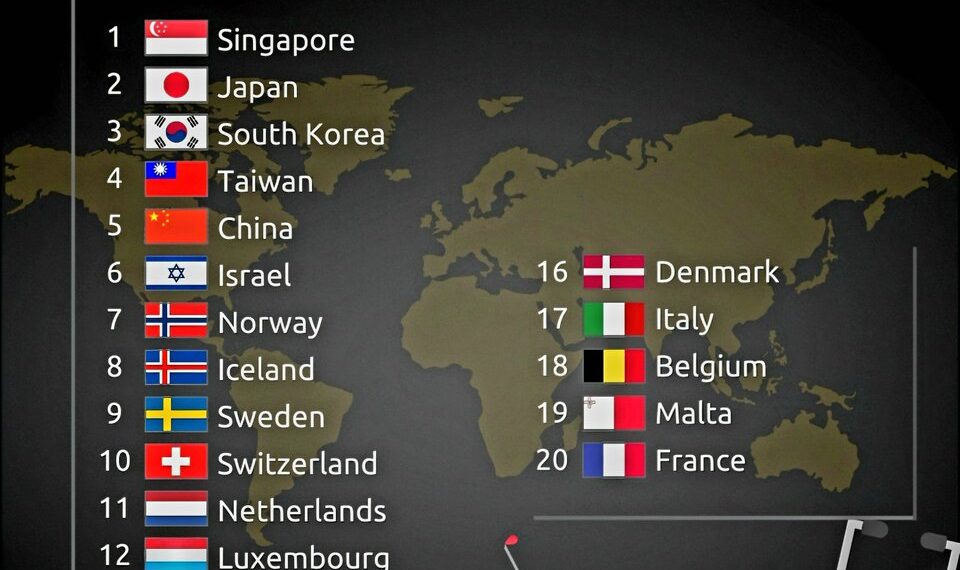Select Language:

1. Singapore: Leading the Way in Healthcare Excellence
Singapore continues to dominate the global healthcare landscape in 2025, thanks to its innovative healthcare policies, high-quality medical facilities, and a well-trained medical workforce. The nation’s heavy investment in research and development, coupled with efficient public-private partnerships, ensures that citizens have access to cutting-edge treatments. The country’s focus on preventative care and healthy lifestyle promotion reduces the burden on hospitals and enhances overall public health.
2. Japan: Combining Tradition with Modern Technology
Japan remains a healthcare powerhouse, blending traditional practices with the latest technological advancements. Its aging population has driven innovation in elderly care and regenerative medicine. The country’s integrated healthcare system emphasizes universal coverage, ensuring that all residents receive comprehensive services. Japan’s extensive use of robotics in elder care and diagnostics underscores its commitment to staying at the forefront of medical technology.
3. South Korea: Innovation and Accessibility at the Core
South Korea continues to refine its healthcare system by prioritizing accessibility and technological innovation. High levels of medical research, widespread use of telemedicine, and government policies aimed at reducing healthcare disparities make South Korea a global leader. The country’s advanced diagnostic facilities and rapid adoption of AI-driven healthcare solutions contribute significantly to its excellent rankings.
4. Taiwan: A Model for Affordable, Quality Care
Taiwan demonstrates how a small nation can achieve high-quality healthcare through smart policy design and efficient resource management. Its National Health Insurance program offers extensive coverage at a lower cost, making healthcare accessible and affordable. Taiwan also invests heavily in digital health infrastructure, enhancing patient connectivity and data management.
5. China: Rapid Progress in Healthcare Infrastructure
China’s expansive healthcare system has seen significant upgrades over the past year. Massive investments in medical infrastructure, combined with ambitious health policies, aim to reduce disparities between urban and rural areas. The country is quickly adopting AI and big data analytics to improve diagnosis, treatment, and public health monitoring on a national scale.
6. Israel: Innovation and Personalized Medicine
Israel continues to lead in medical innovation, focusing heavily on personalized medicine, genomics, and biotech research. The country’s healthcare system, supported by cutting-edge research institutions, enables rapid translation of scientific breakthroughs into clinical practice. Its resilient health infrastructure ensures high-quality care even during crises.
7. Norway: Emphasis on Preventative and Mental Health Care
Norway’s robust healthcare system prioritizes preventative care and mental health services. Its focus on holistic wellness, combined with universal coverage, results in better health outcomes and reduced long-term costs. The country leads initiatives in digital health solutions and patient-centered care models.
8. Iceland: Exceptional Care in a Small Population
Iceland’s tight-knit healthcare network provides personalized, high-quality care despite a small population. The nation benefits from efficient resource management and a strong emphasis on primary care. Investment in telemedicine and remote diagnostic capabilities ensures all residents receive timely treatment.
9. Sweden: The Balance of Innovation and Equity
Sweden maintains a balanced approach, blending innovative medical research with equitable healthcare access. Its comprehensive digital health platform, combined with a focus on social determinants of health, helps maintain high life expectancy and low disease prevalence across all socioeconomic groups.
10. Switzerland: Excellence in Specialized Care
Switzerland is renowned for its specialized healthcare services and advanced medical centers. The nation offers a seamless integration of health insurance, patient care, and advanced medical research. Its prestigious hospitals attract international patients seeking top-tier treatment options.
11. Netherlands: Forward-Thinking Approaches to Healthcare Management
The Netherlands continues to lead with innovative healthcare management practices, ensuring efficient use of resources and minimized waiting times. Its focus on value-based care, integrated health services, and patient empowerment drives continual improvement in health outcomes.
12. Luxembourg: Small But Impactful Healthcare System
Luxembourg’s small country status allows for highly personalized healthcare, with a high degree of medical infrastructure per capita. The government’s investment in digital health and cross-border care options enhances service quality and accessibility.
13. Germany: Combining Tradition with Cutting-Edge Technology
Germany’s healthcare system remains one of the most sophisticated worldwide. The country invests heavily in medical research, hospital infrastructure, and digital innovations such as AI and telehealth. Its dual healthcare model balances public and private sectors efficiently.
14. Hong Kong: High-Quality Healthcare in a Compact City
Hong Kong’s healthcare system boasts excellent public and private sector services, supported by a high density of top-tier hospitals. Ongoing technological integration, including electronic health records and telemedicine, improves patient care delivery.
15. Finland: Focus on Sustainability and Prevention
Finland’s healthcare system emphasizes sustainability and preventative health strategies. Its investments in digital health tools and patient engagement initiatives aim to reduce long-term healthcare costs while boosting population health.
16. Denmark: Leading in Digital Innovation
Denmark’s proactive adoption of digital health platforms, e-prescriptions, and remote monitoring ensures a modern and efficient healthcare environment. The country’s commitment to equal care access helps maintain high standards across all regions.
17. Italy: Prioritizing Community and Aging Populations
Italy focuses heavily on community-based care, especially for its aging population. Investments in home health services and geriatrics ensure that elderly citizens receive personalized, continuous care, keeping hospital stays minimal.
18. Belgium: Integrating Multilingual and Multicultural Healthcare
Belgium’s diverse healthcare system offers multilingual services and culturally sensitive care, catering to its multicultural population. The nation’s focus on innovation, such as digital health records and telemonitoring, enhances patient experiences.
19. Malta: Compact but Advanced Healthcare
Malta’s small size allows for efficient healthcare delivery with personalized services. Continuing investments in healthcare infrastructure and digital health solutions ensure that residents and visitors alike benefit from high-quality care.
20. France: World-Renowned for Specialized Medical Care
France remains a leader in specialized treatments, innovative surgery, and patient-centered care. Its universal healthcare system offers extensive coverage, supported by a strong network of research hospitals and clinics.
Source: Legatum Institute, 2025






